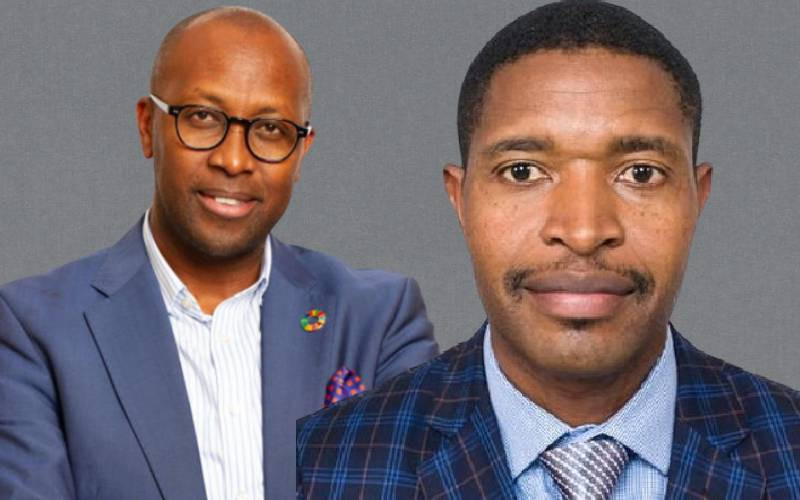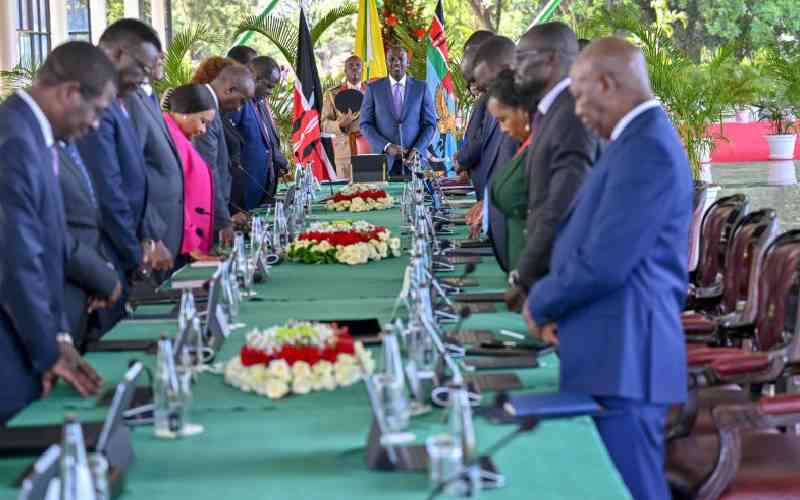
The traction on health being central to the climate crisis is gaining momentum, and its drum rolls need to sound even louder.
This, as about 1.1 million people in Africa died prematurely from air pollution-related diseases in 2019, representing one-sixth of the total global estimate of 7 million annual deaths.
Furthermore, climate-linked emergencies have been on the rise with more than 100 health emergencies occurring in the African region every year as reported by WHO - accounting for 70 per cent of all natural disasters that occurred between 2017 and 2021, with devastating consequences.
At least 2,121 public health events were recorded in the region between 2001 and 2021, out of which, 56 per cent were climate-related. In our recent memory is the cyclone Freddy in southern Africa that killed at least 676 people and displaced thousands in Malawi, with enormous destruction of infrastructure including health facilities, roads, schools and water systems.
These staggering statistics paint a devastating picture of the loss and destruction of human lives and livelihoods that climate change and its intersection with the health of our people has had. We hold the position that no one should be allowed to speak on climate change without a mention of statistics of people dying and suffering from climate-linked health conditions.
This year, for the first time, the world's biggest climate summit held annually by the United Nations will have a day dedicated to discussing the health impacts of climate change. The 28th Conference of Parties' (COP28) president, Sultan Al Jaber, made the announcement earlier in the year saying its inclusion will widen the scope of climate adaptation and foster climate resilience, as well as beef up other mitigation measures.
Climate and health experts around the world will agree that this has been long overdue, but having it gain impetus at COP28, somewhat, makes up for the lost time.
Undeniably, health is the human face of the climate crisis whose reality is within our reach. People's health and the health of the planet are inextricably linked. The clarity of science as guided by the Intergovernmental Panel on Climate Change (IPCC), whose latest report was released this year, shows that human-induced climate risks exacerbate both planetary and people's health.
A summary of the IPCC's report on health done by the WHO outlines why health systems can easily be crippled by climate change. In its sixth assessment report, the IPCC indicates how the shifting average temperatures aggravate the occurrence of existing health conditions such as malaria and other vector-borne diseases.
Additionally, a study published earlier this year by the Royal Society shows that climate change made the malaria-causing mosquito shift to areas that it previously did not find favourable for breeding. In a country like Kenya for instance, studies have shown that malaria prevalence is moving away from its known endemic regions, mostly around the Lake region to the highlands.
The WHO's analysis of the IPCC reveals that Loss and Damage has a direct impact on public health which has both economic and non-economic costs. As popularly said, "health is wealth" - a country's economy will be affected when people hit by the climate crisis cannot afford the healthcare they need to improve their quality of life. Loss of health as a result of climate change could mean the loss of cultural heritage, indigenous knowledge, societal or cultural identity, as well as biodiversity which can contribute to the deteriorating mental health of the people.
Such realities show the need to make health a key agenda at climate summits.
The Africa Climate Summit, a Missed Opportunity?
The Africa Climate Summit presents a pivotal moment to address the undeniable interplay between climate and health - a matter of life and death for our people. The tragic irony isn't lost on us. African leaders have, for a long time, prioritised inanimate things, energy, agriculture, and how minuscule our continent's contribution is to global greenhouse gas emissions, yet it's our communities that bear the harshest brunt of climate change's devastating impacts.
Stay informed. Subscribe to our newsletter
Sadly, the organisers seem to have overlooked the urgency of this health crisis, as it remains conspicuously absent from the Summit's agenda. This isn't merely an oversight; it's a haunting omission that risks squandering a golden opportunity to amplify Africa's voice on a global stage, especially with the 78th Session of the United Nations General Assembly (UNGA) and COP28 looming on the horizon.
We can't afford to miss this chance. With the health of the African communities at stake, we have to seize the moment to petition for the inclusion of health into climate change dialogue - ensuring that Africa's vulnerabilities and needs are not just heard but are acted upon in global forums.
Unified African Position
Nonetheless, a promising shift is emerging, as key players like Africa's health ministers and civil society organizations, including Amref Health Africa, are leading the charge in framing health as central to the climate agenda. These influential and immutable voices are not only elevating the discourse but also laying the groundwork for policy initiatives that prioritize health in climate action. Their efforts represent a strategic move to steer the focus of climate dialogues towards a more holistic and urgently needed approach.
A regional meeting held in Malawi this past week, with climate-health experts and members of the African Group of Negotiators (AGN), served as a precursor for Africa's position on Health at COP28. This special convening, a first of its kind in the world, brought together climate health experts, policymakers and members of the AGN to develop a common position ahead of the Dubai conference - making Africa the only continent with a unified stance in all climate change and health negotiations. The common position will be socialized with ministers and key partners at the Climate Summit and will be presented to the United Nations Framework Convention on Climate Change (UNFCCC) at COP28.
While the science already speaks volumes about what is already happening, it is imperative that countries design mechanisms that will be used to finance the health impacts of climate change. Africa needs to come up with investment opportunities that will help in cushioning vulnerable communities against the health impacts. Such discussions will be tabled in the negotiation rooms at the COP28, later this year, and hopefully result in legally binding commitments.
To fortify Africa's strategic agenda, maintaining national momentum and securing governmental endorsement of these pivotal issues is paramount. We urge African health ministers to actively engage in upcoming global fora like COP28 and our high-level inter-ministerial dialogue at the Africa Climate Summit in Nairobi. Such participation is indispensable for devising robust, health-inclusive policies in climate mitigation and adaptation.
To win the debate on the climate crisis, health must feature prominently, especially in the 'global boiling era', as the United Nations Secretary-General, Antonio Guterres, puts it. We must begin to view the climate crisis not just as an abstract global challenge, but as a pressing health issue that needs to be urgently addressed.
Dr Githinji Gitahi is the Group CEO of Amref Health Africa and Martin Muchangi, is the Director for Population Health and Environment at Amref Health Africa
 The Standard Group Plc is a
multi-media organization with investments in media platforms spanning newspaper
print operations, television, radio broadcasting, digital and online services. The
Standard Group is recognized as a leading multi-media house in Kenya with a key
influence in matters of national and international interest.
The Standard Group Plc is a
multi-media organization with investments in media platforms spanning newspaper
print operations, television, radio broadcasting, digital and online services. The
Standard Group is recognized as a leading multi-media house in Kenya with a key
influence in matters of national and international interest.
 The Standard Group Plc is a
multi-media organization with investments in media platforms spanning newspaper
print operations, television, radio broadcasting, digital and online services. The
Standard Group is recognized as a leading multi-media house in Kenya with a key
influence in matters of national and international interest.
The Standard Group Plc is a
multi-media organization with investments in media platforms spanning newspaper
print operations, television, radio broadcasting, digital and online services. The
Standard Group is recognized as a leading multi-media house in Kenya with a key
influence in matters of national and international interest.






